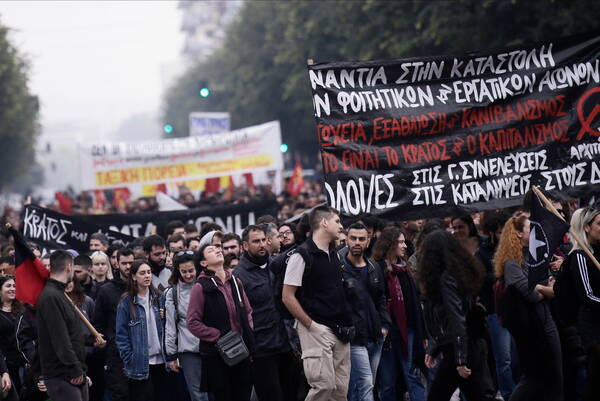Workers walked off the job in Greece on Wednesday for a nationwide 24-hour strike against rising inflation and cost of living.
The strike disrupted services around Greece, with ferries tied up in port, severing connections to islands, state-run schools shut, public hospitals running with reduced staff and most public transport grinding to a standstill.
Thousands of protesters also marched through the streets of Athens and the northern city of Thessaloniki.

Brief clashes broke out at the end of demonstrations in both cities, with small groups of protesters throwing Molotov cocktails and rocks at police, who responded with tear gas and stun grenades.
The clashes were over within minutes. Police said one officer was injured in Athens, while two people were arrested in the capital and another eight arrested in Thessaloniki.
One employee at a landscaping company in Athens, Stergios Nikolopoulos, told The Guardian that the low wages in Greece make it difficult to adjust to the rising cost of living.
“We don’t just want to survive, we want to live, and that’s what we’re demanding today,” the 34-year-old said.
Unions called for bolder measures to tackle inflation, and an increase in salaries and in the minimum wage, which is just over 700 euros per month for salaried workers.
The rallies are being described as the biggest since 2015 when Greece received emergency bailout funds from the EU and the IMF in exchange for punishing reforms and austerity.
They come as Greece is grappling with an inflation rate of 12 percent, one of the highest in the eurozone, despite the Greek economy being forecast to grow by 5.3 percent thanks to stronger than expected tourism.
The centre-right government of the Prime Minister, Kyriakos Mitsotakis, has spent an estimated 13 billion euros on energy subsidies, including a heating allowance, since September 2021. It has also promised to raise pensions next year and to announce further increases to the minimum wage.
Source: AP News.

